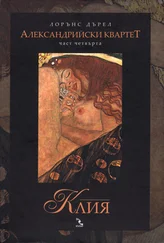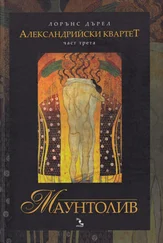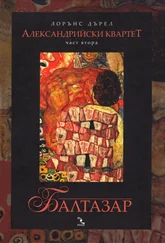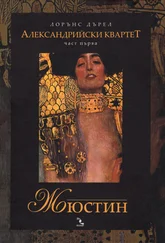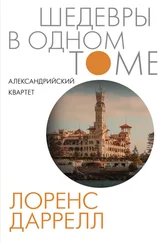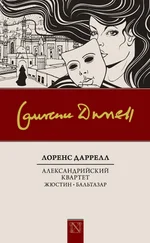Лоренс Даррелл - Prospero's Cell
Здесь есть возможность читать онлайн «Лоренс Даррелл - Prospero's Cell» весь текст электронной книги совершенно бесплатно (целиком полную версию без сокращений). В некоторых случаях можно слушать аудио, скачать через торрент в формате fb2 и присутствует краткое содержание. Жанр: Проза, на английском языке. Описание произведения, (предисловие) а так же отзывы посетителей доступны на портале библиотеки ЛибКат.
- Название:Prospero's Cell
- Автор:
- Жанр:
- Год:неизвестен
- ISBN:нет данных
- Рейтинг книги:4 / 5. Голосов: 2
-
Избранное:Добавить в избранное
- Отзывы:
-
Ваша оценка:
- 80
- 1
- 2
- 3
- 4
- 5
Prospero's Cell: краткое содержание, описание и аннотация
Предлагаем к чтению аннотацию, описание, краткое содержание или предисловие (зависит от того, что написал сам автор книги «Prospero's Cell»). Если вы не нашли необходимую информацию о книге — напишите в комментариях, мы постараемся отыскать её.
Prospero's Cell — читать онлайн бесплатно полную книгу (весь текст) целиком
Ниже представлен текст книги, разбитый по страницам. Система сохранения места последней прочитанной страницы, позволяет с удобством читать онлайн бесплатно книгу «Prospero's Cell», без необходимости каждый раз заново искать на чём Вы остановились. Поставьте закладку, и сможете в любой момент перейти на страницу, на которой закончили чтение.
Интервал:
Закладка:
But the Count has, by an imaginative detour, avoided the impasse in which people too heavily endowed with sensibility or the need for expressing it, find themselves. The old house with its Venetian family portraits and tarnished silver radiates an absolute calm. Greek terra cottas lie piled in dusty cupboards-broken jars and oil-dips, all relics of the plough from this fertile valley.
We dine late by candlelight; light almost as yellow as the moon outside the great windows of the dining-room; portraits of Venetian ancestors stare pallidly at us from the walls in their mouldering frames. The floors are full of dry-rot.
After the dinner the Count takes up a branch of candles and leads the way to the wine-covered terrace by the white southern wall on which the dapple of leaves silhouetted by moonlight stand out unmoving. Here we sit and talk away the greater part of the night. In the silences between our sentences we can hear the oranges dropping from the trees in the orchard — dull single thuds upon the mossy ground. The marble table is wet with dew. An owl cries, and the watchdogs at the lodge grumble and shake their chains.
The Count smokes his home-made cigarettes in a short bone holder, stained with nicotine. Relaxing, and spreading out his hands against the moonlight as if to warm them at its white fire, he begins to talk. I have wasted all these words on describing the Count in the hope of isolating that quality in him which is so admirable and original, and when he begins to talk I grasp at once what it is. He is the possessor of a literary mind completely uncontaminated by the struggle to achieve a technique; he lacks the artifice of presentation, the corrupting demon of form. It is a mind with the pollen still fresh upon it.
While we sit here Ourania the heavily made but beautiful peasant girl comes out in her bare feet, the corner of her blue headdress gripped modestly between her white teeth, and arranges glasses of Visino before us; 'Would'st give me water with berries in't?' says the Count reflectively—'have I never told you that Corcyra is Prospero's island? This', he indicates the glass in which Ourania has placed a spoonful of dark viscous raisin jam, 'is one of the links in my chain of reasoning. I cannot think that the scholars would support me, but you, my friend,' turning to Zarian, 'you would take a little pleasure in the knowledge that Shakespeare was thinking of Corcyra when he wrote The Tempest. Who knows? Perhaps he even visited it.'
It is the kind of opening which Zarian loves so much. His silver hair gleams in the moonlight. Taking his spectacles from his pocket, as if the better to follow the Count's reasoning, he places them on his nose and says: 'Now then, Count. Defend this contention.'
The Count has taken a small silver-hilted pencil from the pocket of his cardigan and is busy tracing meaningless little shapes on the marble table. He dusts some specks of cigarette ash from his clothes, and writes the word SYCORAX before Zarian. 'Look,' he says, 'Caliban's mother, the mysterious blue-eyed hag who owned the island upon which Prospero was cast — her name is almost too obvious an anagram for CORCYRA.' He pauses for an instant and raises his eyes to Zarian's eager face. He is unable to resist smiling at his friend. 'Shall I go on?'
'You will remember the Principle of x of which I was speaking? It struck me that perhaps in the work of the great artists I might find this outpost of the sensibility charted. In the course of my reading I stumbled upon The Tempest. I found what I was looking for in Prospero, but while I was reading the play I was struck by a few elements in it of a peculiarly Ionian nature. If you lose patience with the idea please tell me and I will stop. First of all, the shipwreck. Prospero's Island it is abundantly clear is somewhere off the main route between Tunis and Naples. I propose to disregard the claims for Lampedusa and Malta; and I think that if you observe the colouring of the text you will see that it is peculiarly Greek. Think of Caliban's imprecation “A south-west blow on ye, And blister ye all o'er", and reflect to yourself whether this southwester is not the worst evil that could befall an Ionian — sirocco weather. Then, to go a little further with Caliban; he enumerates the qualities of the isle as “The fresh springs, brine-pits, barren place and fertile”. I ask myself here whether the Venetian saltpans in the south of the island might not have been in his mind.' The Count says this with a singular and deprecating sweetness; I can see that he anticipates Zarian's protest. “Zante has also a claim under that head. There was a prodigious trade with Zante during Elizabethan times; Lithgow mentions the currants which the English used in their puddings; and even if you read mere teachers of languages like Hollyband you find an unself-conscious reference to the island — proving that to the average Elizabethan merchant Zante was already well known. And of course the salt-pans of Zante would be better known.'
The Count nods patiently. 'Perhaps too well known, not quite mysterious enough to furnish the imaginative background for the desert island of The Tempest. We are on delicate ground. Yet you must agree that the colouring is Mediterranean—“And thy broom groves, whose shadow the dismissed bachelor loves, being lasslorn; thy pole-clipped vineyard and thy sea-marge, sterile and rocky-hard”. What do you say to that, my friend?'
Zarian is too patently seduced by the idea to say anything at all; in his mind I can see he is planning a whole article on this remarkable idea. He sits impatiently in his chair and waits for the Count to speak. The latter takes a turn up and down the terrace trying to remember further quotations to support this delightful fantasy. At each Zarian's enthusiasm grows.
'I must,' he says at last, 'I must drink to this noble discovery. Count, this is a memorable addition to our knowledge about Corcyra.'
'Then,' says the Count, in a voice mellow with pleasure and a certain triumph, 'let us drink a glass of Visino — which I have christened Caliban's Wine. “Water with berries in't", is, to my mind, not coffee, as most of the commentators would have it, but [Greek] — this unusual Ionian drink. Your health, my dear Zarian.'
The health is unduly prolonged in a bottle of red Kastellani wine, while Zarian plunges deeper into the maze of surmise and conjecture. 'We cannot be certain whether Shakespeare ever came here,' says the Count, 'but we can ask ourselves two things. First, who is the “Well-wishing adventurer” who is described as “setting forth” in the dedication to the sonnets? The second is this: Shakespeare was too well known to be the victim of an open piracy by 1609. But if he were out of the country it is possible that Mr. Thorpe might have had the courage to print the sonnets. The Tempest was written in 1611, they say.'
At this point, Theodore, who always retires formidably to bed at nine-thirty, puts down his massive volume of medical lore, blows out his candle and comes to the window above our heads. He receives Zarian's information about Shakespeare's visit with sceptical good humour, remarks on the clearness of the night. Looking towards the west you can see a strip of glittering sea drawing a line between two black olive-groves. Small breathless eddies of air come to us across the valley. Theodore sniffs appreciatively and says: 'Jasmine,' before bidding us good night and withdrawing his bearded head from the window. The three of us walk down across the lawn and through the orchard towards the little circular Rotonde which houses the battered statue of a Roman nymph. 'I trust', says the Count, 'that your wives are not offended with me for refusing to invite them to these meetings. If you permit me to say so, women tire me. Their presence introduces an atmosphere of politeness and favouritism; they will discuss poetry like angels until they notice a mirror in the corner of the room. They lack the magnanimity of the male mind.'
Читать дальшеИнтервал:
Закладка:
Похожие книги на «Prospero's Cell»
Представляем Вашему вниманию похожие книги на «Prospero's Cell» списком для выбора. Мы отобрали схожую по названию и смыслу литературу в надежде предоставить читателям больше вариантов отыскать новые, интересные, ещё непрочитанные произведения.
Обсуждение, отзывы о книге «Prospero's Cell» и просто собственные мнения читателей. Оставьте ваши комментарии, напишите, что Вы думаете о произведении, его смысле или главных героях. Укажите что конкретно понравилось, а что нет, и почему Вы так считаете.


